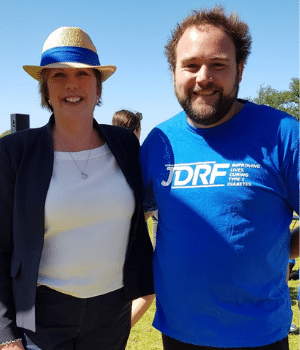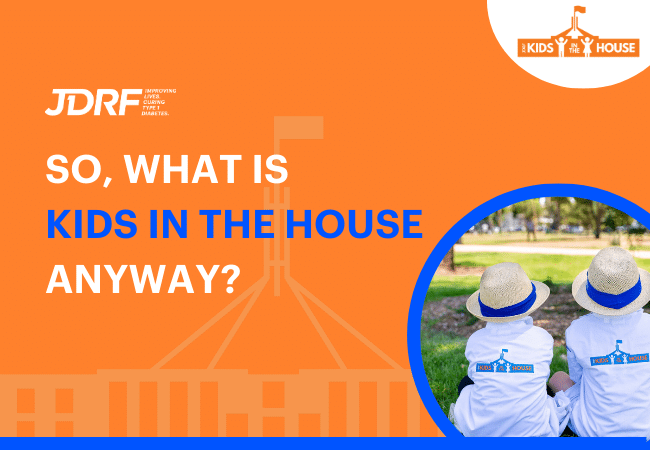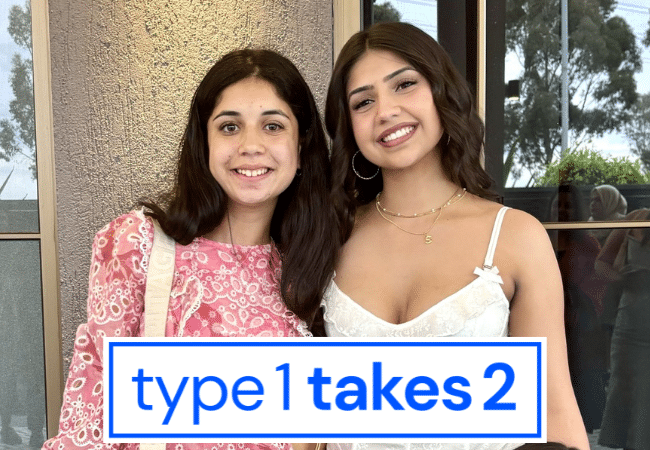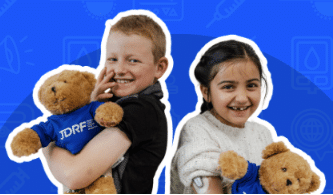Meet JDRF Advocate, Daniel Webb

This week is National Volunteer Week, where we acknowledge and thank volunteers across Australia for the incredible work they do! We caught up with one of our JDRF volunteers, Daniel Webb, who is involved in JDRF’s Advocacy Program.
Why did you decide to join the JDRF advocacy program?
I’ve always wanted to be involved with the diabetic community in a meaningful way, and the JDRF Advocacy program was a great way to do this. I always admired and respected nurses and educators when I was growing up and was a peer leader at Diabetes Tasmania camps, and actually ended up studying nursing in my mid 20s with ambitions to become a diabetes educator. Unfortunately some circumstances conspired against me and I wasn’t able to finish my degree, but the chance to become a JDRF advocate came at the right time and I took it very gratefully.
What does your work in the advocacy program involve?
Being an advocate for JDRF primarily means communicating with local politicians and asking them for their support. For example I have met with several Tasmanian MPs to discuss funding for the Clinical Research Networks third phase, and for the provision of subsidised technology in our #accessforall campaign. As the Tasmanian lead advocate I also provide support and assistance if required to the other Tasmanian advocates, although with such a small but dedicated crew down here, there isn’t often much of that going on!
What has been a highlight during your time as an advocate?
Being in Canberra for the Kids in the House campaign was definitely a highlight for a number of reasons, including meeting the JDRF team in person for the first time but also the excitement of being in parliament house on the day of the leadership spill. However the absolute highlight was the announcement this year of bipartisan support for subsidised CGMs for every type 1 diabetic in Australia. Knowing the impact it will have immediately for so many people is incredibly exciting, and given the nature of the campaign – the relief that rippled through everyone involved when it became apparent that we would be successful in our campaign, was huge.
How do you hope to impact the T1D community through your advocacy efforts?
I think everyone who either has, or loves someone with, T1D appreciates how all-consuming it is. Until there is a cure it will unfortunately remain this way. I think my main drive for being a part of these advocacy programs is to help ease the burden, even if it’s only slightly. Having a chronic illness like T1D can be overwhelming and have a real impact on our health, both physical and mental, and I really hope that the results of our advocacy campaigns help the diabetic community in dealing with it all. Results from the Clinical Research Network will do this in the future, and I know personally how much better control can be with a CGM. I really hope that a lot of T1Ds that can’t currently afford this technology see the benefits that I have and it helps lift some of the weight that is T1D off their shoulders, even if it is only slightly.
What would you say to others who are also considering doing advocacy work?
I think that if people are wanting to help the diabetic community then the JDRF advocacy program is a really great way to do so. We aren’t going to get changes at a federal level unless we have passionate and proactive people willing to represent us and bring our issues to the front of our politicians minds. The JDRF advocacy team is passionate and driven and I don’t think we’d have had the success we have had without the direction and dedication from the people driving this program. If you really want to make a positive difference and be involved in changes that impact the lives of every T1D in Australia, I highly recommend contacting JDRF and discussing joining our awesome advocacy team.




